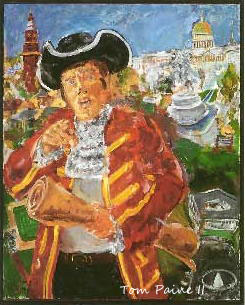[Daniel
Webster, arguing McCulloch v. Maryland 17 U.S. 327 (1819)]
While fully supporting the
petition, my complaint is framed to respect
existing monetary structures, and so puts at issue only the physically
printed portion of Fed money, as follows :
"The
physical printing of notes is an entirely mechanical matter of meeting demand,
and so Johnson proposes that all physically printed notes be United States
notes. In 2011, this would have reduced
the debt held by the public by almost the projected $258 billion printed. [4] The pool of such
printed notes in circulation is about $1 trillion." [5]
As with the issuance of mandated Social Security payments (the subject of my
first petition), this mechanical issuance does not call for the independent expertise
of market-wise bankers. "According
to both the BEP and the Mint, production of notes and coins in various
denominations is driven totally by demand." [6] In fact, the volumes printed are so utterly a mechanical response to public
demand, that "[t]he Federal Reserve measures
demand for U.S. currency by the amount of currency in circulation." [7] This mechanically produced part does not
impact the unprinted reserves with which monetary policy is now conducted. [8]
"The only limitations on the power of
Congress to levy excise taxes are that they must be for the public welfare and
must be uniform throughout the United States." [9] There being no rational
basis for giving the tax generated by this issuance to private banking
interests, the tax is not raised, as the constitution requires, "to pay the
Debts and provide for the common Defence and general Welfare of the United
States." By the same token, although
geographically indifferent, the tax is not "uniform" in the required constitutional
sense, in that the tax on the favored Monied interest is entirely refunded,
being included in the pool of tax that it takes. Without a justifying public benefit, the tax
is a baseless redistribution of wealth. [10] U.S. Const., Art. I, Sec. 8.
4. Johnson
v. Department of the Treasury
Freedom
of the press means freedom to gather news, write it, publish it, and circulate
it. When any one of these integral operations is interdicted, freedom of the
press becomes a river without water. [11]
[In re Mack, 126 A.2d 679, 689 (Pa. 1956)
(Musmanno, J., dissenting)]
Next Page 1 | 2 | 3 | 4 | 5 | 6 | 7 | 8
(Note: You can view every article as one long page if you sign up as an Advocate Member, or higher).





